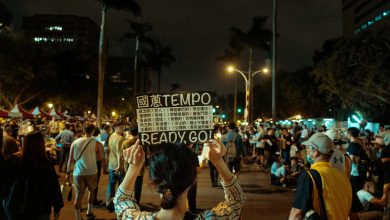DPKK Exemption for Investor Stay Permits

DPKK Exemption for Investor Stay Permits: What You Need to Know
In recent years, Indonesia has become an increasingly attractive destination for foreign investors. With its growing economy and rich natural resources, the country offers numerous opportunities for those looking to expand their business horizons. However, navigating Indonesian regulations can be challenging, especially for foreign investors who need long-term visas to manage their investments. One key regulation to understand is the DPKK (Dana Pengembangan Keahlian dan Keterampilan) exemption for Investor Stay Permits, a rule that can save foreign investors both time and money.
Here’s what you need to know about the DPKK exemption, why it matters, and how it affects your investor stay permit in Indonesia.
What Is the DPKK?
The DPKK (Dana Pengembangan Keahlian dan Keterampilan), or the Skill and Development Fund, is a fee imposed by the Indonesian government on foreign workers in Indonesia. These fees contribute to vocational training and skill development for the local workforce. Employers are typically required to pay the DPKK for each foreign employee working in the country. While this fund supports local workforce development, it can be a costly addition to the overall expense of hiring foreign talent.
What Is the Investor Stay Permit?
An Investor Stay Permit is a long-term visa that allows foreign investors to stay in Indonesia to manage or oversee their investments. This type of visa is particularly advantageous for investors, as it provides a stable residency option without requiring frequent renewals.
There are generally two types of Investor Stay Permits in Indonesia:
- Limited Stay Permit (KITAS) – Valid for 1 to 2 years, renewable.
- Permanent Stay Permit (KITAP) – Available after holding a KITAS for a certain period, valid for up to 5 years, and renewable.
Investor Stay Permits are specifically designed for foreign nationals who invest a certain minimum capital amount in Indonesia. These permits not only ease visa requirements but also allow investors to work legally in the country without needing an additional work permit.
What Does the DPKK Exemption Mean?
For most foreign workers, the DPKK is a mandatory fee, and employers are responsible for covering it. However, the Indonesian government has introduced an exemption for foreign investors holding an Investor Stay Permit. This means that qualified investors are not required to pay the DPKK, making it a more cost-effective option for foreigners looking to do business in Indonesia.
Why Was the DPKK Exemption Introduced?
The Indonesian government aims to encourage foreign investment as part of its economic growth strategy. By offering a DPKK exemption for investors, the government is making it more affordable for foreign business owners and investors to reside in the country and manage their investments firsthand. This incentive reduces the overall cost burden on investors, making Indonesia a more attractive option compared to other countries in the region.
How to Qualify for the DPKK Exemption
To qualify for the DPKK exemption, an investor must meet certain criteria:
- Hold an Investor Stay Permit: You must have a KITAS or KITAP specifically designated as an Investor Stay Permit. Regular work visas or other types of stay permits do not qualify for the exemption.
- Minimum Investment Amount: Investors must meet the minimum capital investment requirements set by the Indonesian government. These requirements can vary depending on the type of business and industry.
- Registered Company: The investment must be made in a legally registered Indonesian entity (such as a PT PMA – a foreign-owned limited liability company), and the investor must hold a significant role within the company, such as a shareholder or director.
Consult with a licensed immigration consultant or legal advisor to ensure that you meet these requirements and to navigate the application process for the Investor Stay Permit.
Benefits of the DPKK Exemption for Investors
The DPKK exemption offers several advantages for foreign investors in Indonesia:
- Cost Savings: The exemption reduces the financial burden associated with hiring foreign personnel, allowing investors to allocate funds to other essential business operations.
- Ease of Doing Business: With fewer bureaucratic requirements, foreign investors can focus on managing and growing their businesses in Indonesia.
- Attractive Residency Option: The Investor Stay Permit offers a long-term residency solution that allows investors to remain in the country legally without constantly renewing their visa, making Indonesia a more appealing investment destination.
Final Thoughts
The DPKK exemption for Investor Stay Permits is a significant benefit for foreign investors, simplifying the process of living and working in Indonesia. By taking advantage of this exemption, investors can reduce costs and focus on building successful businesses in one of Asia’s fastest-growing economies. If you’re considering investing in Indonesia, consulting with an immigration expert or legal advisor can help you understand how to make the most of this benefit, ensuring a smooth transition into Indonesia’s vibrant market.



